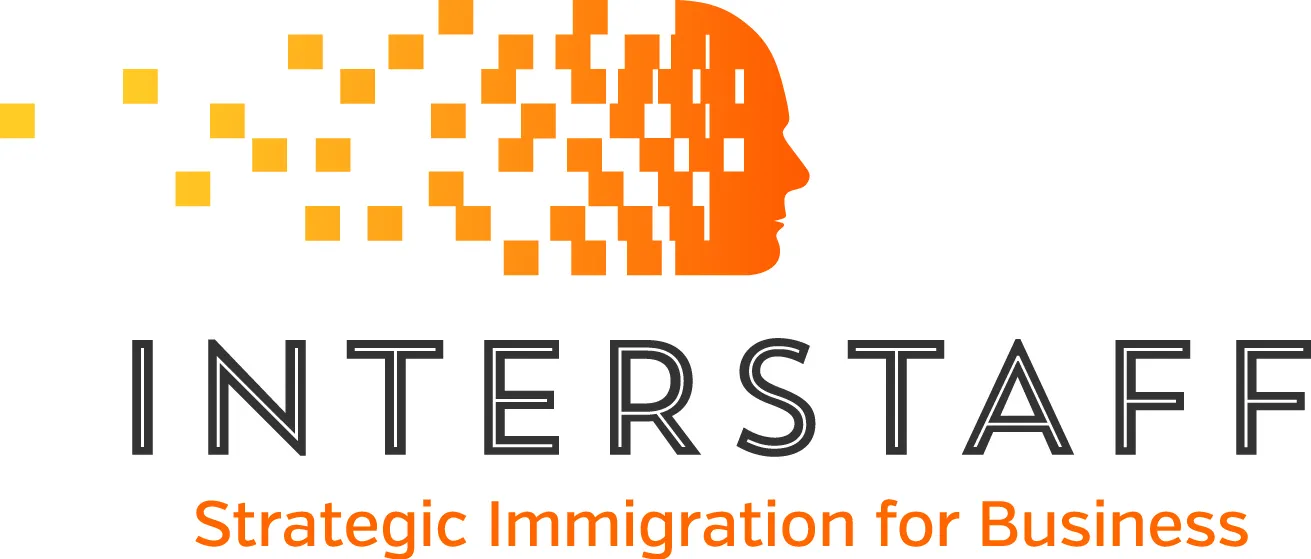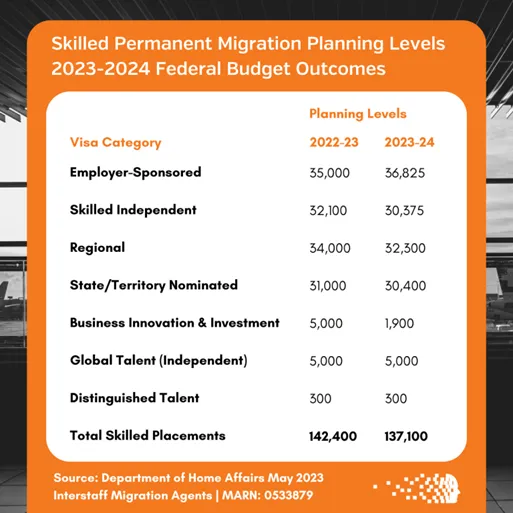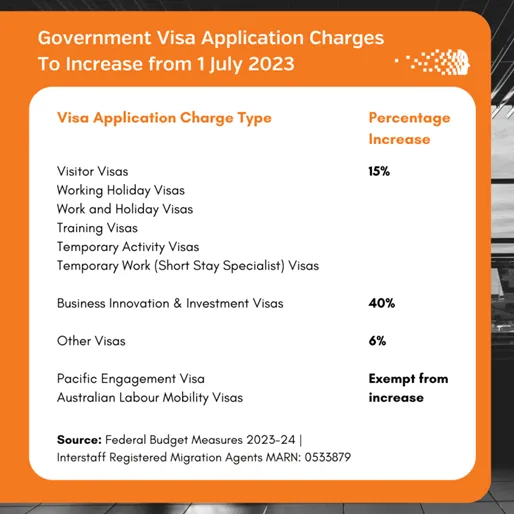What The Federal Budget Means For Migration To Australia

The government’s first Federal Budget since it was elected in 2022 has revealed the size and composition of the migration program will continue to focus on skilled migration in 2023-2024. Here’s a summary of the main Budget announcements under the Department of Home Affairs portfolio and what they mean for migrants and employers of visa holders.
Written by Sheila Woods (MARN: 0533879) of Interstaff 11 May, 2023
Migration Planning Levels | Post-Pandemic Recovery
Australia’s permanent migrant intake has been reset to the pre-pandemic planning level of 190,000 placements, which was a slight decrease from the 2022-2023 level of 195,000. During the pandemic years, the permanent migration intake was set at 160,000.
72% of the 190,000 placements have been allocated to Skilled Migration (137,100 placements) and 28% to Family Migration (52,500 placements). It is a shift from the almost 50/50 Skilled/Family Migration split in 2020-21 during the pandemic.
The allocation for Business Innovation and Investment Visas decreased from 5,000 to 1,900 places, which reflects a shift away from this category and towards Employer-Sponsored and Skilled Independent Visas – read more about this here.
The 2023-2024 composition of the Family Stream remained the same as last year:
Partner Visas: 40,500
Parent Visas: 8,500
Child Visas: 3,000
Other Family: 500
Family Total: 52,500
Higher Visa Application Fees and Charges
From 1 July 2023, visa application charges will increase by between 6% to 40% as per below:
Other Announcements
Other announcements included:
- Greater capacity for visa processing, with $75.8 million dedicated over two years from 2023 -2024, which should result in faster visa turnarounds
- Skills Assessment pilots to provide onshore migrants fast-tracked skills assessments and support with free employability assessments. This will include improved qualifications recognition for migrants from India.
- Greater support for migrants, including an enhanced Adult Migrant English Program, settlement services for young migrants, and pilot programs for those experiencing domestic violence
- A larger focus on visa and sponsorship compliance with $50 million dedicated over four years from 2023-2024
Changes that were previously announced were confirmed to start from 1 July 2023, such as the increase in minimum salary requirements for Employer-Sponsored Visa holders (TSMIT) to $70,000 per annum, Temporary Graduate post-study rights to stay and work in Australia for an extra two years, and the International Students working hour cap.
In addition, international students working in the aged care sector will be exempt from the fortnightly work hour cap of 48 hours until 31 December 2023.
Established in 1988, Interstaff has over 35 years of Australian visa and migration experience and provides strategic immigration advice to businesses and individuals Australia-wide and internationally. MARN: 0533879.


